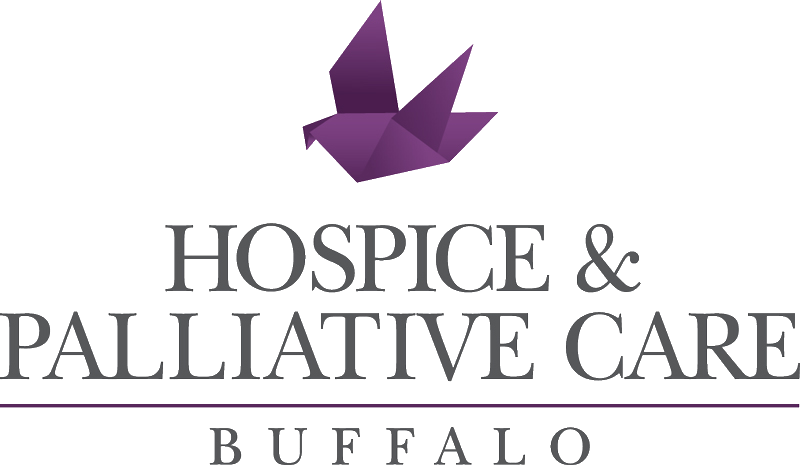Advance Care Planning
It’s never too early to think about, talk about and document your healthcare wishes
Advance care planning: Share your wishes
Hospice & Palliative Care Buffalo is here to help educate you and your family about advance care planning. While many of us do not want to think or talk about future healthcare needs, often, the lack of planning can result in stress, confusion and disagreement amongst loved ones.
If ever you are unable to speak for yourself, you want to be sure your preferences are known. Be sure to select someone to be your healthcare agent – someone you trust – that will respect and honor your wishes if they need to step in to make decisions on your behalf.
Think, talk and document: Complete a health care proxy
A health care proxy is an advance directive document allowing you to assign an agent to make healthcare decisions for you only in the event you are unable to do so yourself. Prior to completing a health care proxy, you will want to speak with your physicians and loved ones about your personal wishes, values and beliefs – all of which will impact future healthcare decision-making. Keep in mind, the person you choose will want to know about treatments you may want or not want if faced with a life-limiting situation.
Health care proxy frequently asked questions
Anyone 18 years of age or older, regardless of age or healthcare status.
To allow you to designate someone to make healthcare decisions only in the event that you are unable to do so yourself.
Select someone who you have spoken with about your care preferences. This individual may be a loved one that you trust and honor to carry out your wishes. You may also name a primary agent and a secondary agent.
You can download a New York State Health Care Proxy Form here. Your physicians will also have copies.
No, however the witnesses that sign the document cannot be assigned as an agent.
Keep with your legal paperwork, provide copies to your family and loved ones and provide one to your physicians.
A living will is a written statement of your specific healthcare wishes, used in the event you become unable to speak or decide for yourself. Even though New York State does not have a standard living will form, the State does recognize living wills as valid if they provide "clear and convincing evidence" of the person's wishes. Also, the person you name as your healthcare agent may refer to your living will as further evidence of specific health care preferences.
What Is a MOLST?
A MOLST (Medical Orders for Life Sustaining Treatments) is a document intended for patients with serious illness. This document will define a patient’s goals of care and guide physicians and other healthcare providers in providing care in alignment with their stated preferences.
Honoring patient preferences is a critical element in providing quality end-of-life care. To help physicians and other healthcare providers discuss and convey a patient's wishes regarding cardiopulmonary resuscitation (CPR) and other life-sustaining treatment, the Department of Health has approved form Medical Orders for Life-Sustaining Treatments (MOLST), which can be used statewide by healthcare practitioners and facilities. (Note: you will want to be certain you are completing the form for the State in which you live.) A MOLST is intended for patients with serious health conditions who:
- Want to avoid or receive any or all life-sustaining treatment(s);
- Reside in a long-term care facility or require long-term care services; and/or
- Have a life-limiting illness.
Completion of the MOLST begins with a conversation and a series of ongoing conversations between the patient, the patient's healthcare agent or surrogate, and a qualified, trained health care professional that defines the patient's goals for care, reviews possible treatment options on the entire MOLST form, and ensures shared, informed medical decision-making. Although the conversation(s) about goals and treatment options may be initiated by any qualified and trained healthcare professional, a licensed physician, nurse practitioner or physician assistant must always confer with the patient and/or the patient's healthcare agent or surrogate about the patient's:
- Diagnosis
- Prognosis
- Goals for care
- Treatment preferences
- Consent by the appropriate decision-maker. The document must be completed and signed as per instructions to be valid. Learn more here.
You can always update your advance directive documents if your wishes change. It is a good idea to review your documents from time to time, and to have ongoing discussions about your wishes with your healthcare agent, your loved ones and healthcare providers.
After you’ve completed your advance directives, make sure your doctors and loved ones all get copies. Keep copies in your home and tell your family where your paperwork is should they need to access it.
If you or a loved one are enrolled in palliative care or hospice care, we will assist you with advance care planning education and guide you through completing appropriate documents.
Contact us
We’re here with answers if you have any questions about advance care planning. Request a speaker Get in touch with us if you would like a representative to speak to your group or organization.
If you or a loved one are enrolling in a palliative care or hospice care program, our team will guide you through the advance care planning process.
For more information about Advance Care Planning, visit the NYS Dept of Health.
